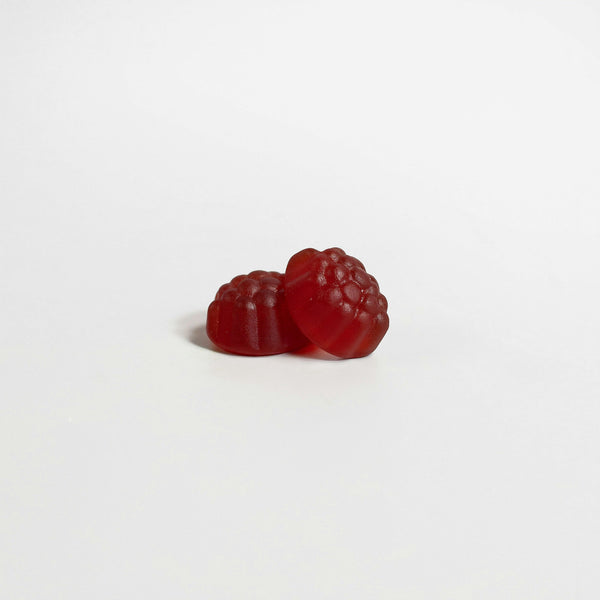Fiber gummies have become a popular way for people to increase their fiber intake, but do they really work? Many people wonder if these convenient supplements can effectively promote digestive health and support weight management. We explore the benefits of fiber gummies and how to properly incorporate fiber supplements into your daily routine. Whether you're looking to improve your gut health or maintain a healthy weight, understanding the role of fiber gummies can help you make informed decisions about your health.
Why is Fiber Intake Important For Health?
Fiber intake is critical to maintaining a healthy diet for several reasons. First and foremost, fiber helps with digestion by adding bulk to stool and preventing constipation. It also aids in weight management by promoting feelings of fullness, which can help reduce overall calorie intake. Additionally, fiber is essential to maintaining a healthy gut microbiome, which supports a healthy immune system and mental health. Consuming an adequate amount of fiber has also been shown to reduce the risk of chronic diseases such as heart disease, diabetes, and other inflammatory diseases including certain cancer types. Overall, incorporating fiber-rich foods into your diet is essential for optimal health and well-being.
Types of Fiber

Understanding the nuances of dietary fiber is crucial for optimizing digestive health, but navigating the distinctions between various types can be complex. At the forefront of this discussion is the differentiation between prebiotic fiber and its counterparts: soluble and insoluble fiber. While all prebiotics are categorized under the umbrella of fiber, the indigestible components of plant-based foods, it's imperative to recognize that not all fibers possess prebiotic properties.
-
Prebiotic Fiber: A type of dietary fiber that serves as food for beneficial bacteria in the gut. It promotes the growth of these bacteria, which produce short-chain fatty acids (SCFAs) that support digestive health and immune function.
- Example Food Sources: Garlic, onions, leeks, asparagus, bananas, oats, and Jerusalem artichokes.
-
Soluble Fiber: Dissolves in water to form a gel-like substance in the digestive tract. It helps regulate blood sugar levels, reduce cholesterol levels, promote satiety, and improve digestion by slowing down nutrient absorption.
- Examples Food Sources: Oats, barley, legumes, fruits (e.g., apples, oranges, berries), and vegetables (e.g., carrots, broccoli).
-
Insoluble Fiber: Does not dissolve in water and adds bulk to the stool, promoting regular bowel movements. It can help prevent constipation by speeding up the passage of food and waste through the digestive system.
- Example Food Sources: Whole grains, nuts, seeds, and the skin of fruits and vegetables.
Common Types of Fiber in a Fiber Gummy
Understanding the composition of fiber gummies is essential for making informed choices about digestive health supplements. These gummies often contain a variety of fiber types, each offering distinct benefits. Here are some of the common types of fiber found in fiber gummies:
- Psyllium: Known for its ability to promote regular bowel movements and relieve constipation, psyllium is a soluble fiber sourced from the husks of Plantago ovata seeds.
- Inulin: Commonly extracted from chicory root or agave, inulin is a prebiotic fiber that feeds beneficial gut bacteria, supports digestive health, and may aid in weight management.
- Xylooligosaccharides (XOS): XOS are prebiotic fibers found naturally in certain fruits and vegetables. They selectively stimulate the growth of beneficial bacteria in the gut, contributing to overall digestive wellness.
- Galactooligosaccharides (GOS): Derived from lactose-containing dairy products, GOS are prebiotic fibers that promote the growth of beneficial gut bacteria, improve bowel regularity, and support immune function.
- Fructooligosaccharides (FOS): Naturally occurring in many fruits and vegetables, FOS are prebiotic fibers that stimulate the growth of beneficial bacteria in the gut, supporting digestion and enhancing overall gut health.
These common types of fiber found in fiber gummies offer a convenient way to supplement daily fiber intake while supporting various aspects of digestive wellness.
Benefits of Fiber
According to the Center for Disease Control and Prevention (CDC), fiber is an ally in maintaining your health. Not only does it assist with blood sugar control, but it also plays a crucial role in weight management. Moreover, incorporating fiber-rich foods into your diet can lower your risk of heart disease and certain cancers.
- Control Blood Sugar: One of the key advantages of fiber for individuals, particularly with diabetes or prediabetes, is its ability to regulate blood sugar levels. Unlike other carbohydrates, fiber is not absorbed or broken down by the body, preventing sudden spikes in blood sugar. This helps to keep your blood sugar within the target range recommended by healthcare professionals.
- Protect Heart Health: Fiber acts as a natural barrier against the absorption of fats and cholesterol in the body. By lowering triglyceride and cholesterol levels, fiber helps reduce the risk of heart disease.
- Maintain Digestive Health: Fiber functions as a gentle scrub brush for your digestive tract, aiding in the removal of bacteria and other debris. This cleansing action not only improves gut health but also reduces the risk of colon cancer, making fiber an essential component of a healthy diet.
- Promote Satiety and Weight Management: Fiber-rich foods have the added benefit of keeping you feeling full for longer periods. Since fiber cannot be digested, it moves slowly through the stomach, providing a lasting sense of satiety. Additionally, many high-fiber foods are naturally low in calories, making them an ideal choice for individuals aiming to manage their weight effectively.
Incorporating fiber-rich foods into your daily diet can support your overall well-being. By harnessing the multifaceted benefits of fiber, you can potentially enjoy improved blood sugar control, enhanced heart health, and a strengthened immune system.
Are Fiber Gummies the Best Form of Fiber Supplements?

Fiber gummies can contain unwanted ingredients such as added sugar in addition to other added ingredients essential to form a gummy. Additionally, the typical size of a gummy only allows for so much fiber as well, so it can be an inefficient way to add fiber to your diet. When looking to add more fiber to your diet, it's important to consider the amount of fiber per serving in the supplement you choose.
Fiber gummies may not provide enough fiber compared to other high-fiber options like powder supplements. Consider a powder supplement, which is easy to incorporate into your daily routine. Many powders can include fiber blended with prebiotics and postbiotics which offer a more comprehensive supplement for your digestive health. Fiber helps regulate digestion, promote fullness, and may even reduce the risk of chronic diseases. Consider increasing the intake of soluble and insoluble fiber through diet and supplementing with prebiotic blends also containing probiotics and postbiotics for comprehensive gut health support.
Guide to Fiber Supplement Dosages
When it comes to taking fiber supplements, the amount you should supplement with will vary depending on your individual needs. The general recommendation is to start with a low dose and gradually increase it until you reach the desired effect. It's important to remember to drink plenty of water when taking fiber supplements to prevent constipation and other digestive issues.
The recommended daily intake of fiber for adults is around 25-30 grams, but many people fall short of this goal. Supplementing with fiber can help you reach your daily target and improve digestive health.
Fiber supplements may contain different types of fiber such as psyllium, inulin, and glucomannan. If you are seeking a prebiotic fiber to support overall gut microbiome health, consider prebiotics such as xylooligosaccharides (GOS) and galactooligosaccharides (GOS). Each type has its own benefits and potential side effects, so it's important to choose the one that best suits your needs. Some people may also benefit from a combination of different types of fiber supplements to achieve optimal results. Consult with a healthcare provider if you have questions or concerns about fiber supplementation.
Can I Eat Too Much Fiber?
Yes, you can eat too much fiber which can lead to some uncomfortable side effects. Consuming excessive amounts of fiber can cause bloat and gas, making you feel uncomfortably full and potentially leading to abdominal discomfort. It can also interfere with the absorption of certain minerals and nutrients in the body. It is important to find a balance when consuming fiber-rich foods to avoid these issues. The recommended daily intake of fiber for adults is around 25-30 grams, so it is important to be mindful of your fiber consumption and make sure you are not overdoing it to prevent any unwanted side effects.
In Conclusion
Gummies may not be the most efficient or effective form of fiber supplementation. While they may be convenient and tasty, their overall effectiveness may be questionable compared to other forms of fiber. If you do choose a fiber gummy, make sure to ensure it does not contain any added sugars. Added sugars can negate the potential benefits of the fiber and may contribute to other health issues. Ultimately, the choice is yours, but it's important to weigh the pros and cons before relying on fiber gummies to support your dietary fiber intake.